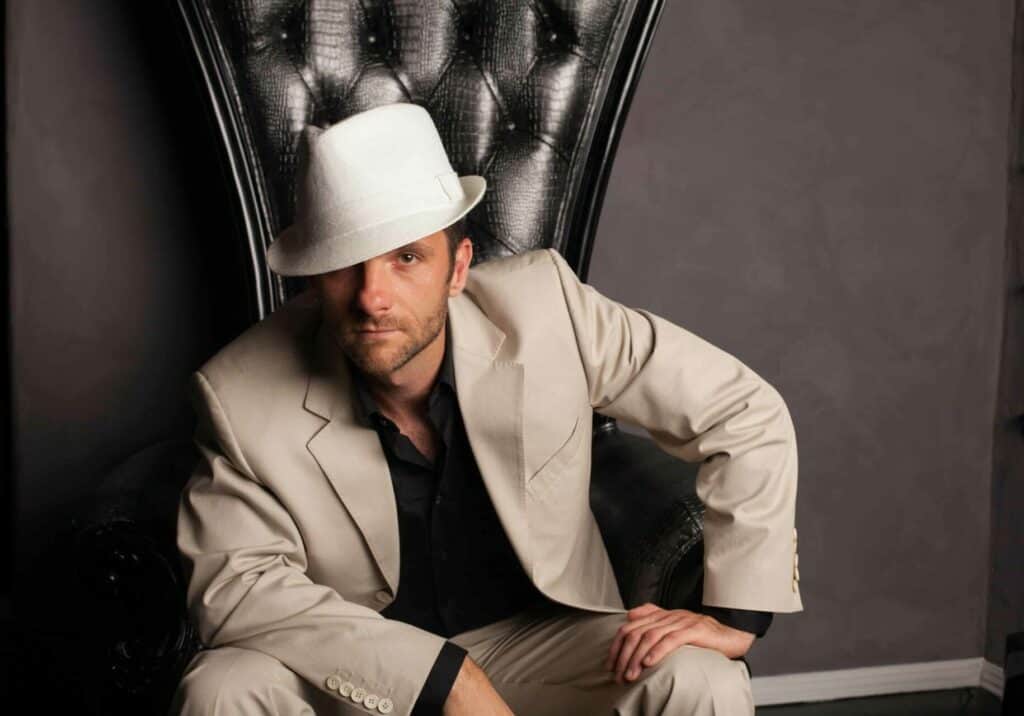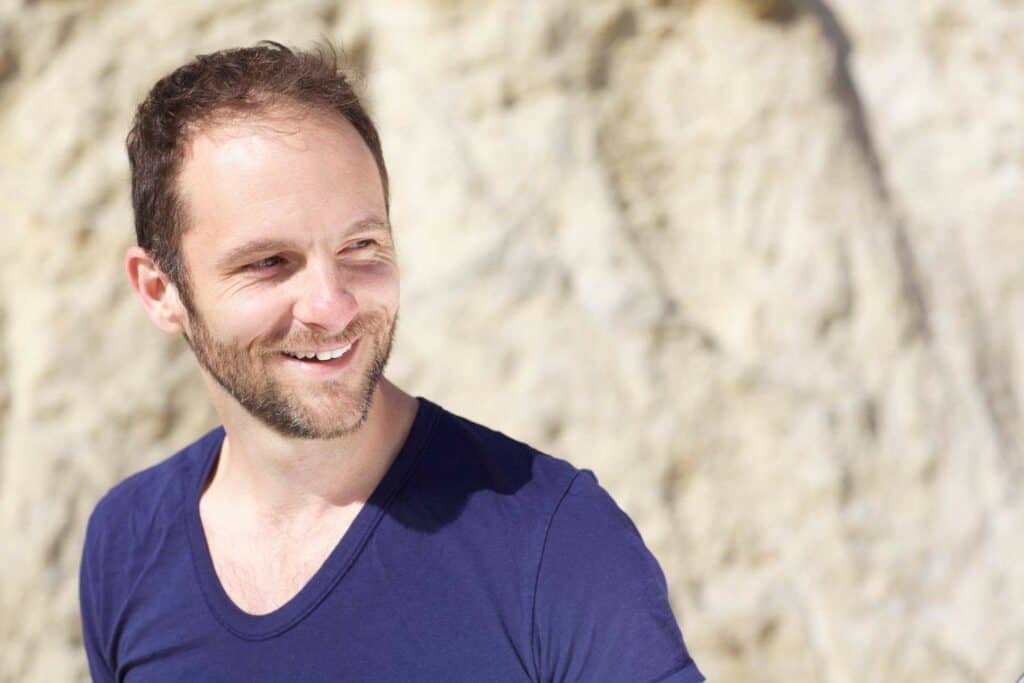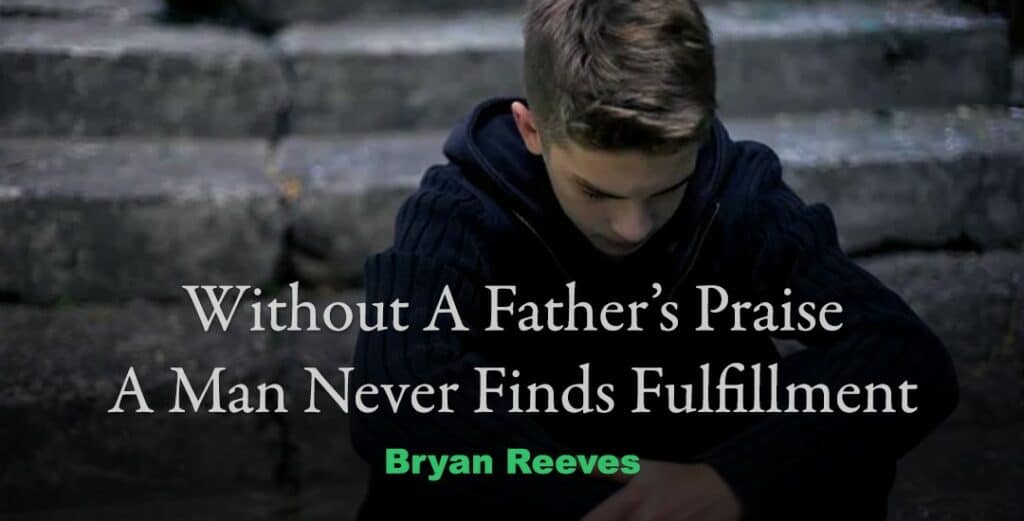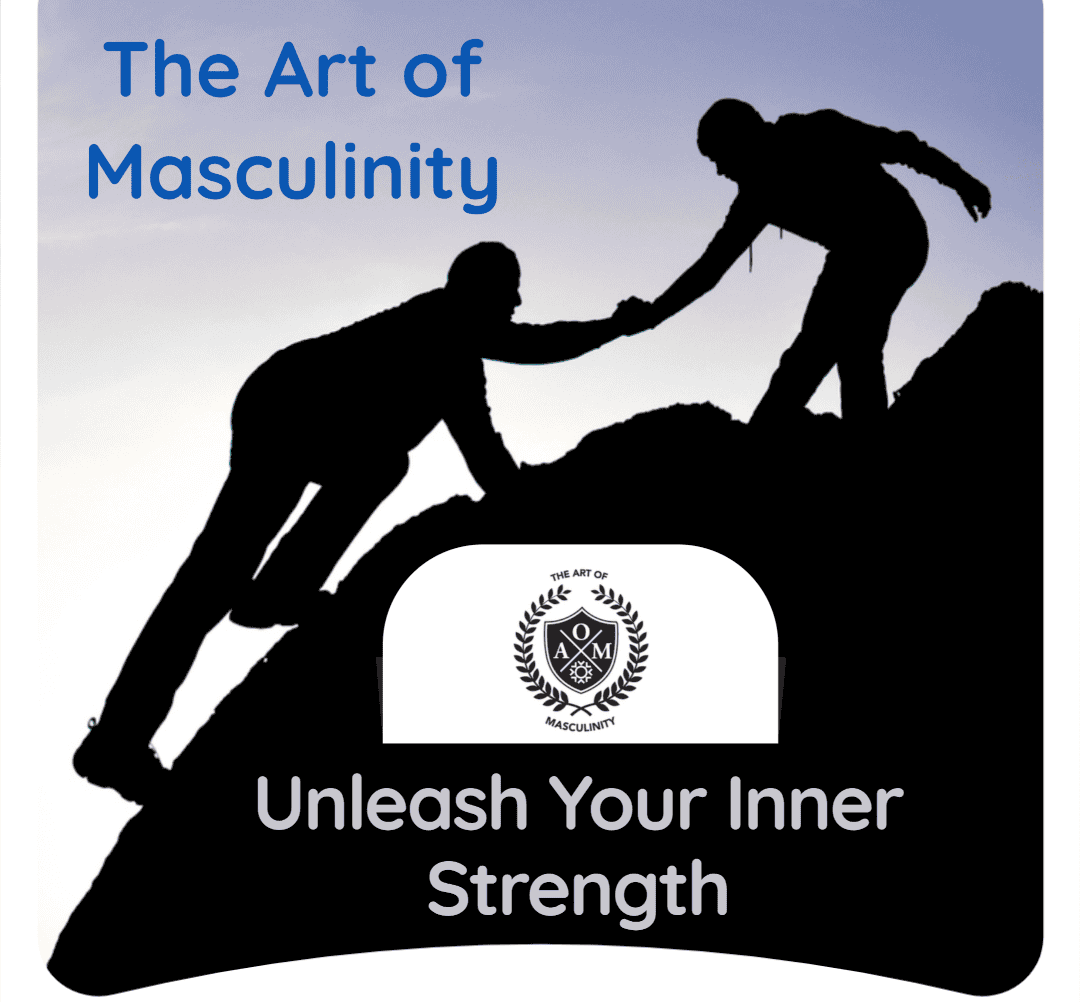Bryan Reeves
Special Guest Contributor
Throughout my life I have been plagued by the enduring fear that I’m never quite successful enough, whatever my actual successes.
Which has been at times a kind of torture for every woman I ever tried to love.
For I have tragically sacrificed love, over and over again, on the raging pyres of an endless (and futile) pursuit of some “ultimate success” that nonetheless refuses to reveal itself. No matter how bright the burn of my sacrificial fires, that final success I’ve hunted has only ever persisted to lurk stubborn in the dark shadows just beyond light’s edge.
I know now it wasn’t some ultimate external success I was seeking, but rather the enduring and unassailable peace-of-mind I hoped it would bring.
Since diving deep into men’s (inner growth) work a decade ago, and through coaching hundreds of other men along the way, I’ve discovered a profound connection between the enduring absence of a man’s peace-of-mind and the enduring absence of praise from a father – or any male-elder’s praise.
A Boy Without A Man’s Presence
My dad mostly stopped paying attention to me when I was four years old.
Not because he was somehow a bad father. That was simply my age when he and my mom ended their turbulent marriage, and he moved out, and mostly on, forever.
Though he stayed in touch and I saw him occasionally throughout my youth, the immense void of his daily presence brought with it an immense absence of masculine-energy guidance and praise from an elder man – the very thing a boy requires to become a man, himself.
“A man who ‘cannot get it together’ is a man who has probably not had the opportunity to undergo ritual initiation into the deep structures of manhood. He remains a boy – not because he wants to, but because no one has shown him the way to transform his boy energies into man energies.”
Moore & Gillette
King Warrior Lover Magician
Like so many grown men who remain psychologically adolescent well into adulthood, throughout my 20s, 30s, even into my 40s, I ached deeply for a wise elder man’s guidance, for his blessing and benediction into my own manhood.
I just never knew it. I wouldn’t have admitted it, anyway, so angry was I at being left alone (by men) to find my own way.
For when a boy grows up without the consistent presence of an elder male father-like figure, he grows up believing he’s on his own (a physically present but emotionally distant or abusive man is not “present” for the boy).
A wise elder woman (e.g. mom), no matter how loving, can’t show a boy the way into becoming a mature man. She can surely teach him many essential things – like how a woman expects to be treated by a man – but she can’t model manhood for him, not in the body, where he most needs to learn about “being man.”
When I was 10, two curious events happened that clearly reveal the affect of his absence on me, emotionally, physically, mentally, and the life-long consequences that followed.
The first event happened at a soccer game.
While I played in hundreds of organized sports league games throughout my youth, my dad only came to two.
Both were disasters.
In soccer, I’d been a star forward, one of the highest scorers in the league.
Until the day my dad showed up.
On that day, acutely aware my absent father was watching me from the sidelines, I suddenly felt as though my body had been unplugged from some cosmic electrical socket, as all the energy had been drained from my 10-year-old body.
During a climactic moment on the field, with the ball at my feet, the goal suddenly opened up before me. Instead of striking a decisive rocket-shot into the back of the net, my limp little legs could barely muster a weak toe-tap to the ball, which sent it rolling gently, timidly, along the ground towards the goalie, who scooped it up easily, like he was simply picking up his pet.

I’d never felt so viscerally incapacitated, physically incapable of “success.”
The second disaster happened at a baseball game.
I was the starting pitcher that day. Dad showed up and volunteered to be homeplate umpire, as dads may do at their kids’ games.
I took the mound and looked towards home plate, where I saw my absent father’s eyes staring directly back at me from behind the shadowy black grill of the umpire’s mask.
This time he was no mere spectator. He was specifically charged with judging my every toss of the ball in his direction. Did I throw a good pitch (success) or a bad one (failure)? My dad alone would decide, and the game (and my fragile masculine-worthiness) would hang in his balance.
Again I felt paralyzed, the electrical umbilical cord supplying energy to my boy-body ripped from its source. Instead of fastballs straight over the plate, my listless pitching arm could only offer soft, high arcing lobs that soared high over the heads of both batter and father-judge.
A few pitches in, dad stopped the game, flipped up his mask of menace and asked for help from both coaches. He didn’t know how to call my softball pitches in this baseball game.
I don’t recall whether my dad reassured and praised me at either game. He may have. What I do recall, viscerally, was my shame at failing to perform. I also recall an overwhelming sadness at knowing he wouldn’t likely attend any more games.
I didn’t openly express my emotions on either day. I didn’t know how. Yet my impotent performance revealed it all.
It’s just … no one was present enough to notice.
Since then there was never a convincing voice in my head reassuring me I’m a successful man, a worthy man. Women would often reassure me I’m a “good man,” yet that was never suitable substitute for the blessing of a wise, trustable elder man.
A boy can only receive meaningful affirmation of his manhood from the men already wholly living inside their own.
Thus was my journey, like so many men, that in the absence of an elder man’s wisdom and guidance I too often felt rudderless, powerless, lost adrift in the vast oceans of my life, unable to feel deeply successful for more than rare fleeting moments.
Without a better model of manhood, I naturally defaulted to popular culture’s half-baked ideals: A “real man” is a money-maker who dominates on the field, in the bedroom and the boardroom, whose only permissible emotion is anger, which he uses to get his way.
But I didn’t trust these shallow ideals. Few men genuinely do. Most of us see them as faint shadows, at best, of far more profound and expansive truths about our nature.
So while I looked outwardly successful – money, woman, impact – I felt utterly unworthy of it all, endlessly hungry, always craving for more.
Without a wise elder man (that I trusted) regularly reassuring me that I’m inherently successful – good enough, loved, worthy as I am, regardless the size of my bank account or number of notches on my bedpost or whether I win or lose – I only knew to keep seeking fulfillment by exploiting the world around me.
Which is the best way to never finding fulfilment.
For when one can’t feel successful within their own being, no external accomplishment would ever satisfy.
When one can’t generate true generosity within their own thoughts, they’ll always see strings attached to the generosity of others.
When one can’t connect to the profound love in their own heart, they won’t trust the love of anyone else.

Bryan Withrow Reeves – A former US Air Force Captain, Bryan is now an internationally renowned Author and Life/Relationship Coach with a current focus on supporting men to have better lives and relationships. He’s the co-founder of “Elevate Your Relationship,” a live coaching program for men ready to elevate their relationship game, which has served men in over 10 countries. He’s the host of the podcast, “Men, This Way,” and his viral blog has been read by over 30 million people in every country on the planet (except North Korea). His newest book, Choose Her Every Day (Or Leave Her), is available on Audible, Amazon and other retailers. Link: https://bryanreeves.com

